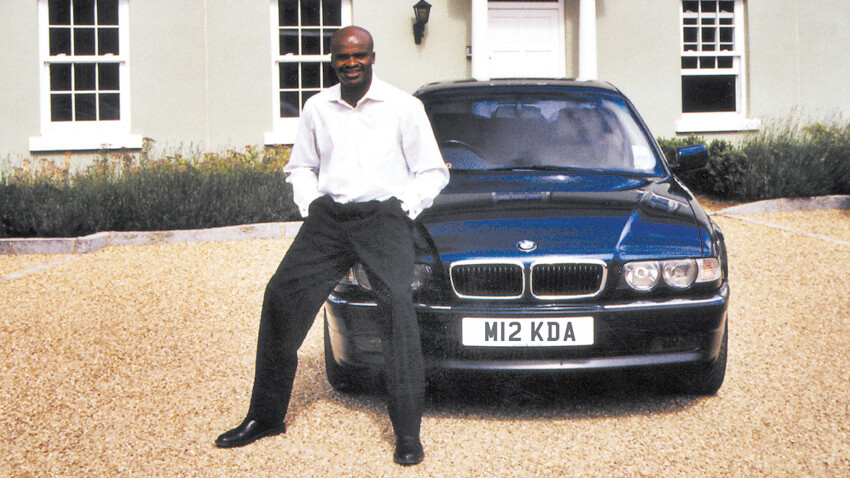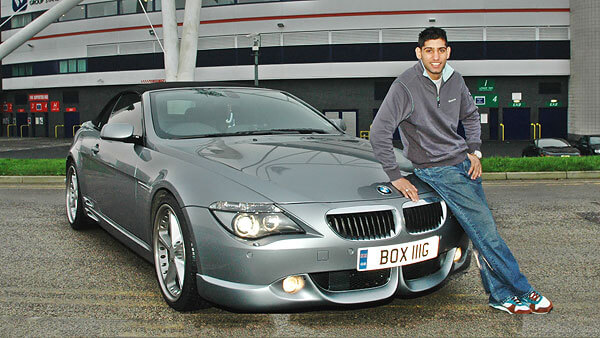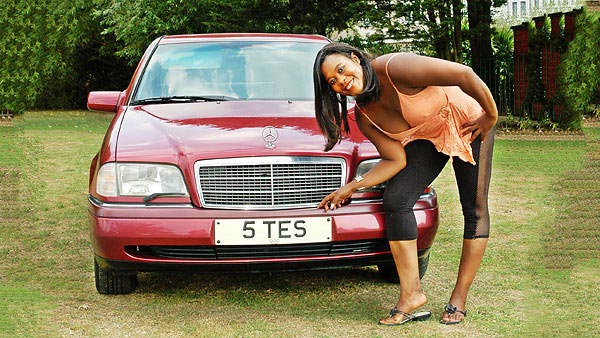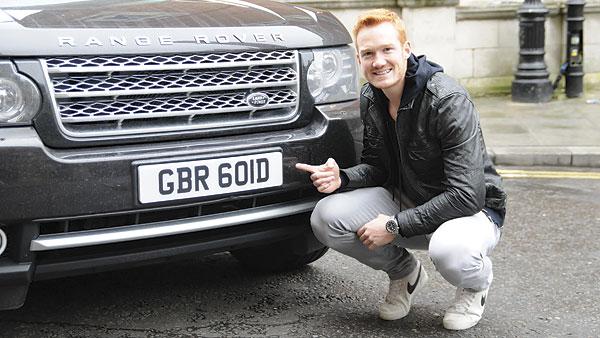
As Team GB return home from Paris clutching an impressive haul of medals, we take time to reflect on an earlier generation of legendary Olympians who, in addition to their medals, also managed to bag some winning number plates. Read the stories and exclusive interviews we featured in our magazine, The World of Personal Number Plates
Kris Akabusi
M12 KDA

Kris opened his account with the British 4×400 metres relay team, winning silver at the 1984 Los Angeles Summer Olympics. He built on this success with two bronze awards in Barcelona, 1992.
1984 Los Angeles (4x400 metres relay)
1992 Barcelona (400 metres hurdles)
1992 Barcelona (4x400 metres relay)
Amir Khan
BOX 111G

As a 17-year-old amateur, Amir achieved a silver medal as a lightweight at the 2004 Olympics in Athens, becoming Britain's youngest boxing Olympian. An earlier success in 2003 rewarded Amir with a gold at the Junior Olympics in Detroit, Michigan.
2003 Detroit (Lightweight)
2004 Athens (Lightweight)
Tessa Sanderson
5 TES

The ace javelin-thrower appeared in every Summer Olympics from 1976 to 1996, winning the gold medal at the 1984 Olympics. She was only the second track and field athlete to compete at six Olympics, and the first black British woman to win an Olympic gold medal.
1984 Los Angeles (Javelin)
Greg Rutherford
GBR 601D

Winning the long jump gold at the 2012 London Olympics and bronze in Rio de Janeiro in 2016, Greg is the most recent of only five athletes to have achieved the ‘Grand Slam’ of Olympic, World, European and Commonwealth titles in the same event.
2012 London (Long jump)
2016 Rio de Janeiro (Long jump)
Sir Steve Redgrave
ROW 601D

The most successful male rower in Olympic history, Sir Steve Redgrave won gold at five consecutive games between 1984 and 2000.
Redgrave is considered to be one of Britain's greatest ever Olympians. By 2016 he was already the fourth most decorated, after cyclists Sir Chris Hoy, Sir Jason Kenny and Sir Bradley Wiggins. Redgrave has also carried the British flag at the opening of the Olympic Games on two occasions.
Following his success in 1996 at Atlanta, USA, he is reported to have said that, if anyone found him close to a rowing boat again, they could shoot him!. Fortunately, a change of heart allowed him to resume training after just four months. Sydney 2000 provided a fifth and final consecutive gold.
1984 Los Angeles (Coxed four)
1988 Seoul (Coxless pair)
1988 Seoul (Coxed pair)
1992 Barcelona (Coxless pair)
1996 Atlanta (Coxless pair)
2000 Sydney (Coxless four)
Find your gold plate
We have the largest selection of plates for any occasion, and sport is no exception. Just enter your chosen discipline and see what we come up with.
